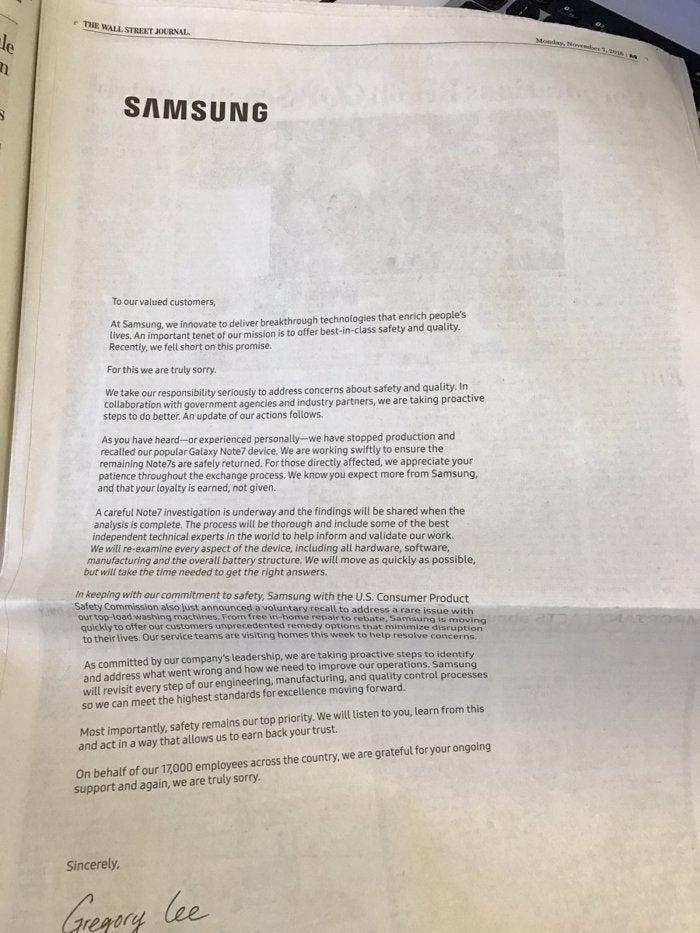
The Ad
The ad says the company will do everything it can to make amends. And find out why the phone shipped with such a dangerous flaw:
An essential intent of our mission is to offer best-in-class safety quality. Recently, we fell short of this promise. For this, we are genuinely sorry. We will re-examine every aspect of the device. Including all hardware, software, and manufacturing of the battery structure. And will move as quickly as possible. But will take the time to get the correct answers.
In October 2016, Samsung killed off the Note7 and asked all customers to return their devices for reimbursement. The letter also references to a recall of Samsung top-loading washing machines. With two significant recalls in one year, Samsung clearly felt the need to win back consumer trust. Most importantly, safety remains our top priority, the ad says. We are grateful for your ongoing support again; we are genuinely sorry. Full-page ads are quite the revenue stream for the newspaper industry. Recently Slack took out a snarky full-page ad when Microsoft launched its competitor, Microsoft Teams.
The story behind the story: Samsung was already looking ahead to the Galaxy S8, confirming that it will include an artificial intelligence-powered digital assistant. It had us thinking that Samsung may double down on its previous strategy. Pushing consumers into its own services, overpowering the phone with software choices. In the era where a solar-powered Pixel is on the shelf, it’s a tenuous strategy.
















